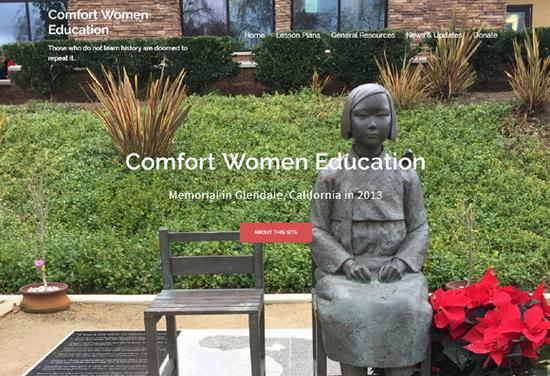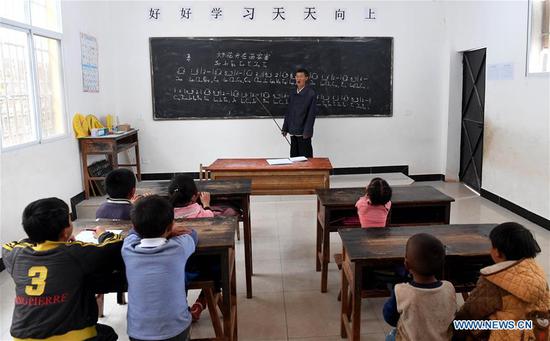
The frontpage of comfortwomeneducation.org, a website aiming to educate U.S. students on "comfort women" history. (Photo/screenshot)
A website aiming to educate U.S. students on "comfort women" history was launched on Monday with lesson plans and materials to be downloaded at no cost.
The website, ComfortWomenEducation.org, provides lesson plans, historical background materials, videos, reference articles, important documents from the United Nations, and primary evidence.
In 2016, the California State Education Board approved a revised History/Social Science Framework that includes the "comfort women" history in the 10th grade world history curriculum.
The website aimed to serve as a "one-stop solution" for teachers in order to teach the "comfort women" issue, which remains largely unknown to American people. Historians estimate that hundreds of thousands of girls and women kidnapped from 13 Asian countries were forced into the Japanese military sex slavery.
"The unique aspect of this curriculum guide is that it presents the academic necessity of a curriculum and stays true to objective learning by providing a clear path, without editorializing or politicization, for the students to understand and appreciate the hidden history of the 'comfort women'," said Julie Tang, co-chair of Comfort Women Justice Coalition (CWJC), a grass-roots advocacy group in San Francisco.
The CWJC sponsors the website in cooperation with the Korean American Forum of California, another "comfort women" advocacy group.
Tang said the digital curriculum provides the substantive aspect of the "comfort women" history with a strong emphasis on its effects on modern-day sex trafficking.
"The curriculum writing team has thoughtfully utilized an Inquiry Design Model that facilitates the teaching and learning of 'comfort women', a complex subject to be explored by high school students for the first time in their classrooms," said Lisa Shek, a veteran educator and a principal in San Francisco Unified School District.
"This unit study is a pioneer of its kind and I am excited that it has found a place in the social studies curriculum of our schools," said Shek, who has spent 31 years teaching in classroom.


















































